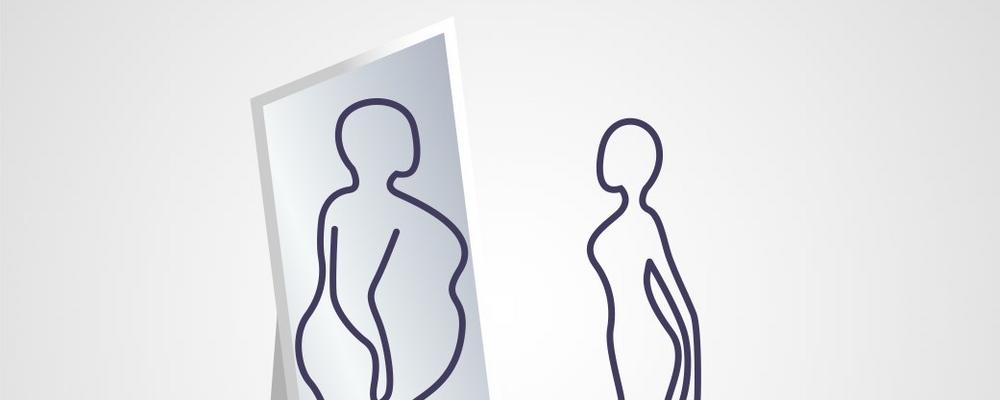
Mirror, mirror on the wall, can touch cause my self-esteem to fall?
Louise Karjalainen's latest blog entry
[Posted on 10 April, 2019 by Louise Karjalainen]
Distorted body image is one of the core symptoms of eating disorders and one of the primary factors that contribute to the development, persistence and potential relapse of anorexia nervosa (AN). It affects how the person in question perceives their own body size (in this case overestimating both size and weight), causing both body dissatisfaction and an obsession with weight control. The impact of eating disorders like AN on body perception is not only cognitive and affective but also perceptual. In other words, it is a complex aspect of the disorder associated with changes in how the brain processes both internal and external information. It has been suggested that AN and distorted body image are caused by a failure to coordinate of all these different perceptions properly.
Processing of tactile information (touch) starts in the skin and eventually leads via the nervous system all the way to the brain, providing us with information originating both outside and inside the body. Research shows that people with AN find it difficult to correctly determine body size (tending to overestimate it), distance and direction when touched. Moreover, individuals with AN perceive touch itself as less pleasant than healthy individuals without an eating disorder.
Using magnetic resonance imaging (MRI), we have now examined which nerve tracts function differently in AN and thereby might contribute to this distorted body image. We found that the neural processing of the affective/emotional signals upon touch is functioning normally. However, we also found that an area of the brain commonly associated with processing images of human bodies and managing self-representation/self-image was less active among individuals with AN than among healthy people. As such, that particular part of the brain might also be involved in creating the distorted body image that AN entails.
A distorted body image can lead to discomfort in situations where social touch is involved. Social touch is important in many different contexts, for example when providing comfort, easing anxiety, reducing pain and facilitating communication. When meeting and treating individuals with eating disorders, one must keep in mind that this sort of touch is often completely unwanted. It is also crucial to note that this affects their self-image and self-esteem – an aspect relevant not only to the disorder itself but also the treatment of it.
[This is a blog. The purpose of the blog is to provide information and raise awareness concerning important issues. All views and opinions expressed are those of the writer and not necessarily shared by the GNC.]